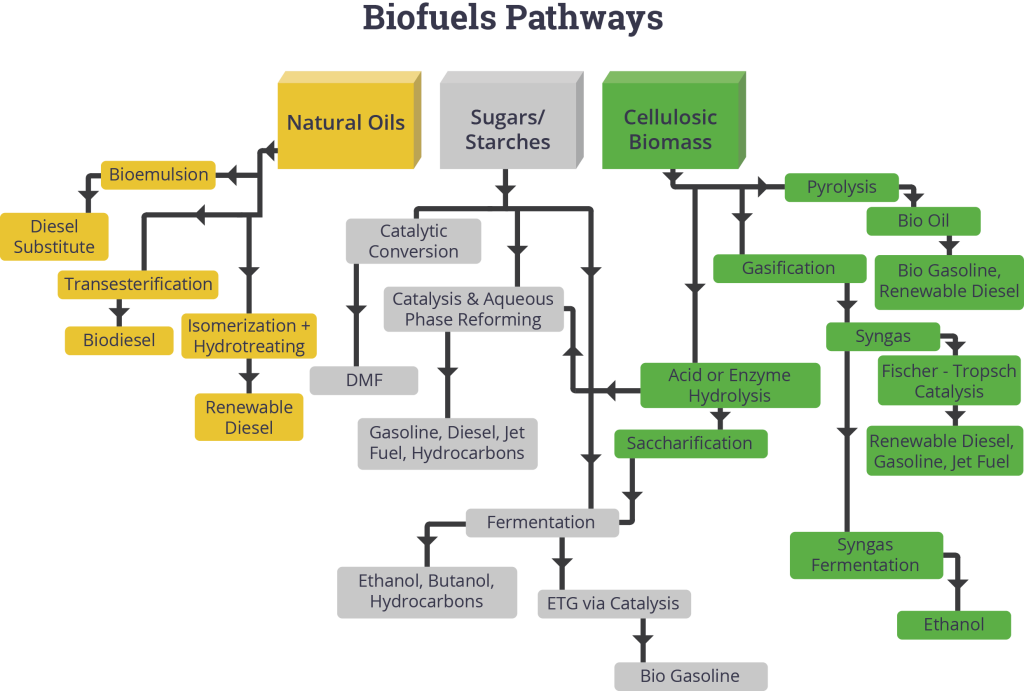What are Biofuels?
Biofuels are liquid transportation fuels derived from biomass (biological material). They provide a clean and renewable fuel alternative that can be used as a blending agent or a replacement for gasoline to reduce vehicle emissions. The most common types of biofuels are ethanol and biodiesel, commonly referred to as “conventional biofuels.” Ethanol is made with starches and sugars from plants such as corn or sugarcane, and biodiesel can be produced from vegetable oils, animal fats, or cooking grease. Competing land use and feedstock needs have inspired development of new generations of biofuels, called “advanced biofuels.” Advanced biofuels depend less on food crops and more on sustainable biomass inputs. For example, second-generation biofuels, such as cellulosic ethanol, utilize inedible food parts and agricultural residues, such as corn husks. Third-generation biofuels from algae and fourth-generation biofuels from engineered biomass are other opportunities in renewable fuel production.
Rising Demand Across the Globe
Demand for biofuels is growing on a global scale. Moderate projections estimate a 17 percent increase in production between 2013 and 2019, while more bullish studies predict 31 percent growth. While ethanol and biodiesel will continue to meet most demand, second-generation biofuels will play a greater role in meeting this increased future demand. Compound annual growth for these biofuels is projected at 49 percent through 2020, when the market will equal $23.9 billion. Biofuels could account for 27 percent of all transportation fuels by 2050.
Making Biofuel
Biofuels can be produced from many different sources through various manufacturing processes. Biofuels can be produced from natural oils, starches and sugars, or cellulosic biomass. More details can be found in the figure below.
Career Opportunities in the Biofuels Industry
Jobs in the biofuel industry encompass a wide range of professions, and expansion of the biofuel industry in any state could lead to significant job growth across multiple professions, including:
- Bio-agriculture farmer
- Agricultural researcher
- Aquaculture specialist
- Material handler
- Chemical plant operator
- Maintenance technician
- Laboratory manager
- Power plant manager
- Quality, safety, and environmental manager
